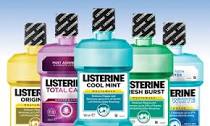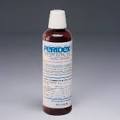What is the best mouthwash?
It depends on what you need the mouthwash for: to stop gum disease, prevent cavities or prevent bad breath. If you are looking for a treatment to prevent bad breath visit our blog do I have bad breath for advice.
Curing the other problems in your mouth; gum disease and tooth decay simply with a mouthwash is a dream at this point. The scientist who makes it unnecessary to floss will be a billionaire. We can not sterilize your mouth killing the bacteria that cause gum disease or decay. If fact killing all the bacteria in your mouth would be a bad idea as many are helpful “good” bacteria. Also we have seen that if you destroy one type as in those that cause gum disease you often get an overgrowth of the bacteria that cause cavities. It almost seems as if they compete and which ever is able to grow the best also holds the other bacteria down. Seems like we just cant win or that the bacteria are actually smarter than us. Reducing the numbers of bacteria in your mouth by keeping your teeth as clean as possible works for either gum disease or decay. This in general requires mechanical disruption of bacteria: think tooth brushing, floss, tooth picks or water pik to reduce their numbers and organization.
So mouthwashes are not a cure but they can be a very useful adjunct to help reduce bacteria and specifically treat gum disease and decay.
Preventing decay with a mouthwash
So lets talk about mouthwashes that can help prevent decay from progressing. This would apply if you are a patient who has been told you have lots of watches; soft spots that are progressing to decay and will need to be filled if the progress is not stopped or you are one of those people who has decay and needs fillings every time you go to the dentist. You would really like to stop the drill, fill , bill cycle. Perhaps even go on your own vacation rather than paying for the dentist’s vacation. You have good oral hygiene, use a fluoride toothpaste and have cut back on your soda, candy, sports drinks and sugar in your coffee. OK, maybe not completely but you are trying. A mouthwash containing fluoride used in the morning before you brush and after you brush at night would be a great adjunct to prevent decay. Which one? They have become so popular that TV commercials tout different brands. For years we recommended Act but the new Listerine Total Care (the purple one)has a higher fluoride uptake into the tooth and creates a tooth surface more resistant to decay. The American dental association has approved many fluoride containing mouthwashes for controlling dental decay If you have an aversion to fluoride your options are limited.
If even a fluoride mouthwash does not seem to arrest the decay for additional ideas see our blog on Can You stop decay.
Controlling gum disease with a mouthwash
What if you are the patient who does not get decay but is a “tarter builder.” Your problems tend to be with your gums: gingivitis and periodontal (gum) disease. You do everything you can brushing and flossing. You even get your teeth cleaned three times a year but you still have bleeding gums and/or bone loss/recession blog. What mouth wash would be best? The good news is that many of the anti-cavity mouthwashes have some effect on gum disease also. The bad news is that no mouthwash is going to cure gum disease. Antibacterial mouthwashes help but are not a cure all. Many contain special substances that kill or disrupt bacteria. The original Cool Mint Antiseptic Listerine has the American Dental associations seal of approval for helping to reduce gingivitis with its active ingredients: Eucalyptol 0.092%, Methyl salicylate 0.060%, Menthol 0.042%, Thymol 0.064%. The new Total care Listerine mentioned above for decay prevention does not have proof of an ability to fight gingivitis. However it almost seems as if anything you do to change the environment in your mouth can be helpful. The latest craze is coconut oil “pulling.” You put a glob of coconut grease in your mouth let is melt and swish for 20 minutes. That is a long time. Try it with water. We actually have had some patients using this method get good results, less bleeding and redness. I think you could rinse with almost anything for 20 minutes and you would dilute the toxins produced by the bacteria enough to help you. But I do not argue with what ever works because this is not an exact science and what works for some does not work for all.
A mouthwash specific for gum disease called Peridex,containing chlorhexidine can also be used to reduce inflammation. Unfortunately it often results in an ugly brown stain that is very difficult to remove. We do not often recommend it as a total mouth rinse rather for application into specific areas in the back of the mouth.
How to use a mouthwash
This is not that difficult, just get some mouthwash out of the bottle and into your mouth. You can pour it in a cup, use the dispenser that comes with most bottles or simply take a swig out of the bottle and swish. Do not swallow it. Just get a comfortable amount in your mouth so that you can control it and can swish it between your teeth. How long depends again on the bottles instructions usually about 30 seconds, which can seem like an eternity standing over a sink. I would err on the long side as the action is increased by time. What’s too long? If it makes your gums or teeth uncomfortable thats too much time. Do not rinse with water right after as the effect will be diluted.
When to use a mouthwash
Once a day may be enough for some. Morning or night is a personal choice. The easiest time for many is to simply put the mouthwash in the shower, use it, and spit it down the drain. This allows you to multi task and gives you plenty of time since you are not wasting your time standing over a sink.
Before or after you brush?
Among mouthwash nerds this is a big debate. In our office we recommend rinsing twice a day for the best results; In the morning in the shower before you brush and in the evening after you brush. The teeth benefit from the pre rinse in the morning hardening them after a long night during which saliva production is decreased resulting in teeth that are more easily abraded away by brushing. The post brushing rinse at night coats the teeth after all the days accumulation of “stuff” (food and bacteria) have been removed increasing its effectiveness. If you are rinsing to prevent gingivitis rinsing twice a day will not hurt.
Of course mouthwashes do not replace tooth brushing and other oral hygiene methods to clean your teeth, flossing or tooth picking.


